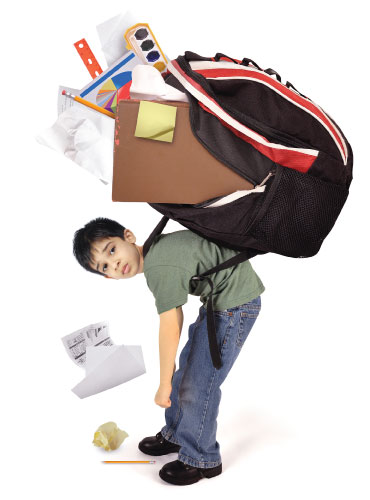RINGGGG! It’s Saturday morning, 9am, time to hit the snooze button. “No, oh no, little Charlie has taekwondo at 10am, arts class at 1pm, swimming lesson at 5pm. How about my darling Jane? She has ballet at 11am, arts class at 1pm and music lesson at 3pm. I have to get up and get them ready for their classes.” There goes your plan to sleep in. Are your kids constantly transiting between classes? Taekwondo, music classes, math classes, football practices and the list goes on. It is undeniable that structured out of school activities are beneficial for your kids. It is always a dilemma for parents to keep a balanced schedule for their kids while not wanting their kids to miss out in their academic or general development.
But in your rush to give them the best of both, are you overscheduling your kids? If you’re not sure, learn more about the pros and cons, and find out how you can strike a balance.
What are the positive effects?
- Provides your child with new learning opportunities.
- Enhances his core learning.
- Helps him to develop important life skills and abilities such as being responsible, taking initiative, working in a team, time management and perseverance.
- Gives him less time engaging in problematic behaviours such as playing truant, smoking or gambling.
- Helps him to discover his passion, and hone his skills while building self-confidence and self-concept.
- Provides him with an opportunity to interact with other people and to enjoy the diversity of multiple perspectives and expertise.
- Gives him a chance to interact with other supportive adults other than his teachers at school.
What are the negative effects?
- The stress of rushing from class to class affects their learning ability as your child needs time to digest, reflect and practice new lessons before he can absorb new ones.
- Reduces unstructured play time.
- Causes him stress and anxiety which may lead to other mental health issues such as depression.
- Instils the idea of competitiveness which may lead to constant worry that his performance is not good enough.
- Specialising in just one activity decreases the chance of your child exploring other avenues.
- He may become less emotionally competent and well buffered.
- The long hours of constant concentration needed coupled with almost no free time to relax and unwind, or even spending his free time to practice his lessons may push back his bedtime to accommodate his busy lifestyle. All these will negatively impact his overall health.
- Lack of parent-child quality time since you will be spending too much time in arranging their schedule and transporting them between activities.
- A bulk of your financial resources are invested in your child’s activities which can add up to a significant amount spent.
- Less personal satisfaction in parenting as you may feel pressured to push your child into more and more activities in order for him to excel in his adult life.
- Less personal downtime for yourself.
Recognising the signs

You’re probably overscheduling your child if:
- He is eating one to many drive-thru meals or surviving on bread alone.
- He is doing his homework in the car in between classes.
- He lacks proper rest. A child below 10 requires at least 10 hours of sleep.
- He falls sick often.
- He is tired, unmotivated and burnt out.
- He is missing out on normal childhood activities such as birthdays, visiting his grandparents, or lacks time for unstructured play.
Striking a balance
While working out a balance between structured activities and unstructured activities isn’t rocket science, it will require communication between you and your children. Arrange for the whole family to sit down for a family discussion on how you can achieve a balance. Here are some items that you should consider:

- Find out what activities your child likes. If there are free trial classes, let him try it out, especially during long school breaks. This gives him more time to explore his passions without too much pressure.
- Be aware of your child’s strengths and difficulties. When he comes home happy after an activity, it is a sign that he enjoys it. Discuss his development with the programme providers and decide if you should continue the class.
- Learning doesn’t stop in the classroom. Make time for your child so that he can apply what he has learnt at school, e.g. get him to help out with measuring things while you are doing some DIY work at home, weighing out ingredients while cooking, teaching him about plants while gardening or grocery shopping, etc.
- Get involved in his homework by providing him with guidance if he encounters any problems. This does not mean that you should do his homework for him! Be patient as it may take some time.
- Carve out family time doing things that he likes.
- Ensure that he has at least an hour a day to just play. Children learn best through play and unstructured play will help him to explore his own creativity and problemsolving skills.
- Ensure there’s a balance between outdoor exercises and indoor activities.
- Sleep is important for a growing child. Make sure that he is in bed by 9pm every night!
Don’t give in to parental peer pressure. While it is important to equip your child with all the necessary skills and knowledge to survive in his adult life, it is also important for him to be a child. Don’t let his memories of childhood be one of multiple structured activities from dawn to dusk! This should not be the only thing he recalls when he reminisces about his good old days.
An educational contribution by Malaysian Paediatric Association.







Comments